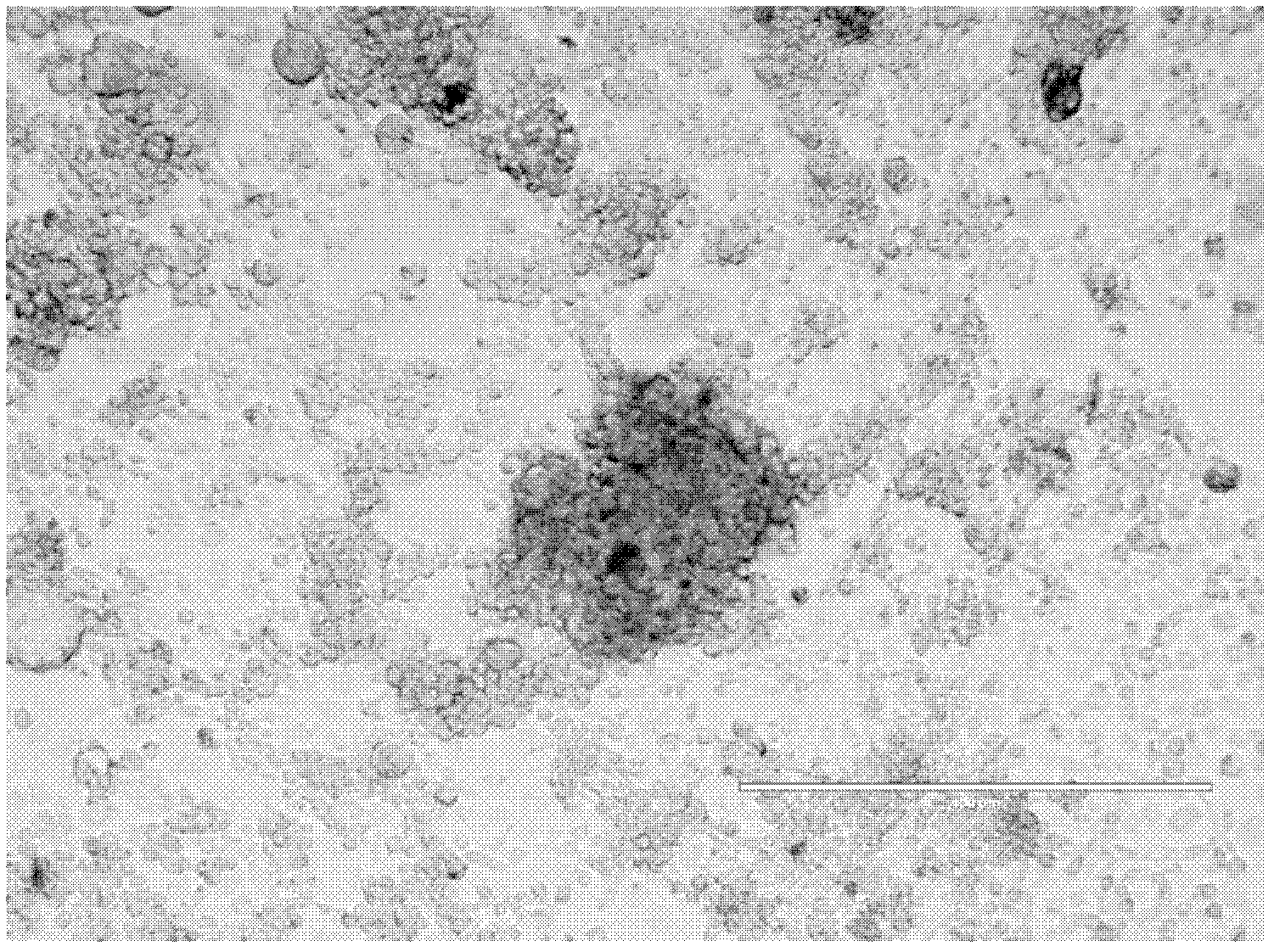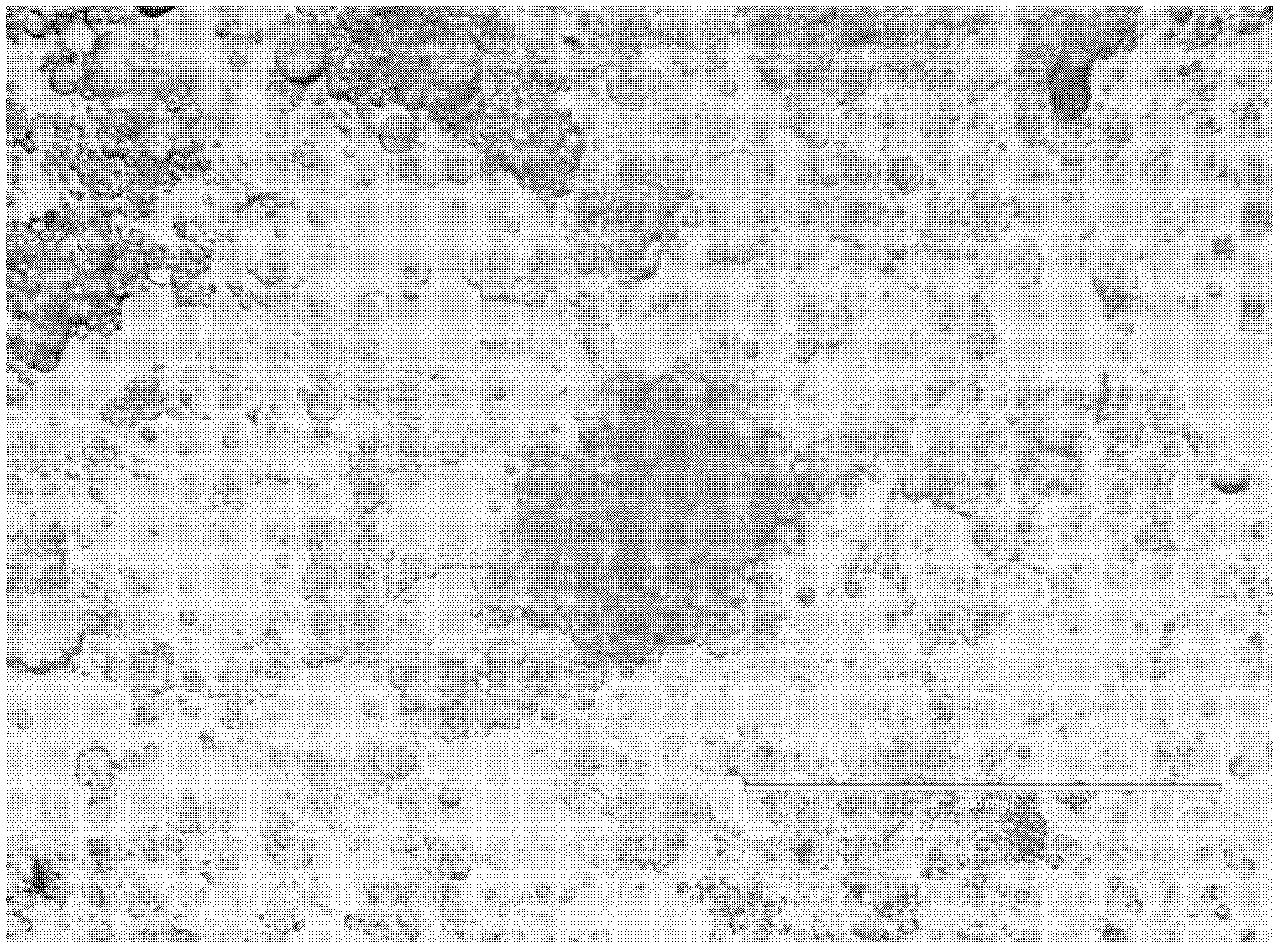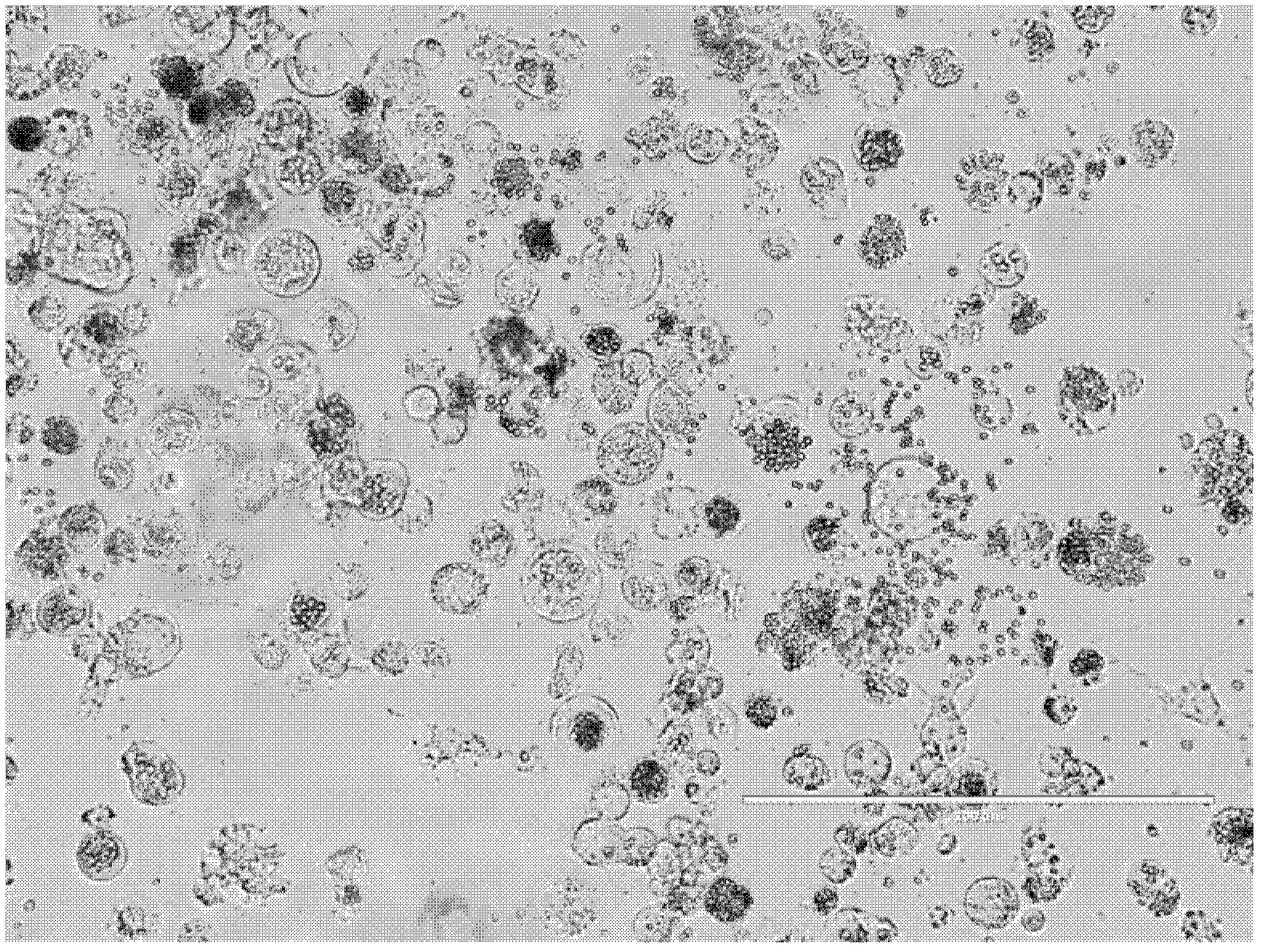Transgenic insect cell line for high-yield baculovirus, and preparation method and application thereof
A technology of ovarian cells and baculovirus, applied in the direction of microorganism-based methods, biochemical equipment and methods, cells modified by introducing foreign genetic materials, etc., can solve the problem of obtaining immortalized insect cell lines that have not been seen
- Summary
- Abstract
- Description
- Claims
- Application Information
AI Technical Summary
Problems solved by technology
Method used
Image
Examples
Embodiment 1
[0060] Example 1. Establishment of transgenic beet armyworm pupal ovary cell line
[0061] The 5-day-old female pupae of the last instar beet armyworm were immersed in 3% hypochlorous acid solution for 5 minutes, and in 75% ethanol solution for 10-20 minutes to carry out surface disinfection. The pupae were dissected to remove the ovarian tissue, keeping it as intact as possible during the operation. Wash the tissue 2-3 times with normal saline, and then use cell culture medium I (based on TNM-FH, containing 100 U / mL penicillin, 100 U / mL streptomycin and 10% (v / v) fetal calf Serum, pH=6.2) was washed 1-2 times, and placed in a 25cm 2Cell culture flasks were placed in a dark cell culture incubator at 27°C for 24 hours. Then add 3mL of cell culture solution I, and culture under the same conditions. Note that the key to the successful establishment of cell lines in this method is to make the tissue stick to the bottom of the cell culture flask and not suspend the tissue in t...
Embodiment 2
[0062] Embodiment 2. Construction of human telomerase reverse transcriptase (hTERT) gene recombinant plasmid pIZT-hTERT and pIB-hTERT
[0063] The vector plasmid pIZT-V5-His was used to construct the recombinant plasmid pIZT-hTERT. Such as Figure 8 As shown, the vector plasmid pIZT-V5-His has a multiple cloning site, a baculovirus early promoter, a V5 epitope and an anti-Zeocin gene. The vector plasmid pIZT-V5-His is subjected to EcoR I and EcoR V restriction enzyme digestion, and the hTERT gene (its sequence is shown in SEQ ID NO 1) (from plasmid pBABE-puro-hTERT) is subjected to Sal I restriction enzyme digestion, After dNTP filling and EcoR I digestion, clone into vector plasmid to obtain hTERT recombinant plasmid pIZT-hTERT.
[0064] The recombinant plasmid pIB-hTERT was constructed using the vector plasmid pIB-V5-His. Such as Figure 9 As shown, the vector plasmid pIB-V5-His has a multiple cloning site, a baculovirus early promoter, a V5 epitope and an anti-Blastic...
Embodiment 3I
[0065] The biological characteristic observation and determination of embodiment 3.IOZCAS-Spex IX
[0066] (1) Morphological characteristics: Observed under a microscope, the cells of this cell line are easy to form cell clusters and can tolerate high-density growth environments, breaking through contact inhibition. Such as Figure 1-2 As shown, there are 3 types of cell shapes: round, fusiform, and elliptical. Most cells adhere to the wall.
[0067] (2) Cell growth: at 27°C, the 10th passage of the cell line was cultured in TNM-FH containing 10% fetal bovine serum, 100 U / mL penicillin, 100 U / mL streptomycin, and 50 μg / mL bleomycin solution, the population doubling time was 70.09h. Such as Figure 5 As shown, the highest cell density can reach about 2.7×10 6 cells / mL.
[0068] (3) Karyotype analysis: such as Image 6 As shown, the 12th generation cells of IOZCAS-Spex IX are tetraploid cells, and the number of chromosomes ranges from 116 to 131 (2n=62).
[0069] (4) D...
PUM
 Login to View More
Login to View More Abstract
Description
Claims
Application Information
 Login to View More
Login to View More - R&D
- Intellectual Property
- Life Sciences
- Materials
- Tech Scout
- Unparalleled Data Quality
- Higher Quality Content
- 60% Fewer Hallucinations
Browse by: Latest US Patents, China's latest patents, Technical Efficacy Thesaurus, Application Domain, Technology Topic, Popular Technical Reports.
© 2025 PatSnap. All rights reserved.Legal|Privacy policy|Modern Slavery Act Transparency Statement|Sitemap|About US| Contact US: help@patsnap.com



